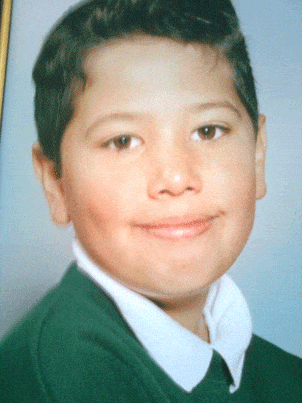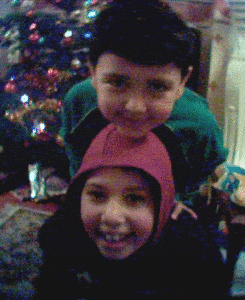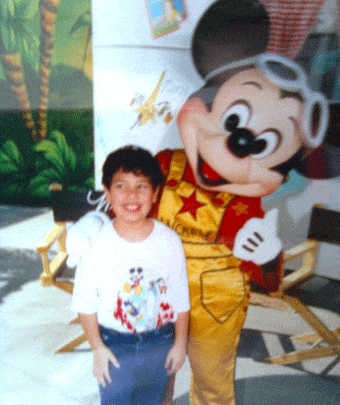If you are reading this story of our experiences, following the death of our son, then you will fall into one of 3 categories.
The first and most important group are those directly affected by such events. The fact that you are reading this if you have recently lost someone is a positive sign as you have begun the process of looking for an answer to this terrible loss.
The second group will be those in the medical profession in whatever capacity that may be. The majority of you may never have come across such a condition as this, so please read on.
The third group is everybody else from whatever walk of life you come from. Even if you have wandered onto this site in error, then please stay and read the rest of this, because all of us have something in common and that is simply to become more aware of the need to recognise the devastation that such undiagnosed heart conditions cause.
The other aim we should all share is the wish to do something about it and help reduce the number of victims. We can all contribute in fundraising, making donations and spreading the message in articles like this.
The death of our son (just like all such deaths) was magnified because it was sudden and without warning; because of his age – just 8 at the time – and, in our case, because it wasn’t long after Christmas. The time of year when people are making optimistic plans about their future.
It was a Sunday and I had to go to work very early at 6am so everybody was still asleep. Adam and his brother Liam did not have much planned apart from their football practise in the afternoon at the local sports centre. At about 6pm I received a call from my wife telling me to come home because Adam had passed out while at football. On the way home I drove by the sports centre and was surprised to see our car outside so I went in and was told that they had taken Adam to hospital. Still not aware of how grave the situation really was I even went home briefly to get some warmer clothes for the boys as I thought they would be cold just in their football kit!
When I arrived at the hospital I asked to see my son and as the nurse led me through the ward I was scanning side to side to see him. She then opened a door into a much smaller room and the first person I saw was my wife sitting on a chair. She said “Adam’s not going to be the same any more”. I didn’t understand what she meant but I then became aware that there were others in the room too, although Adam was not among them. I turned to a doctor and as I did so he gave that unmistakable shake of his head which not only conveys your worst ever expectations but also signals that your life is about to change beyond anything you could imagine.
There are no words to describe the grief that enveloped us over the days, weeks and months that followed. Some of the hardest encounters were of course having to break the news to other family members, especially grandparents (who will themselves then require an enormous amount of care in order to overcome the sheer suffering that such a death causes). All this does is to magnify your own grief at a moment when you just want everything to freeze in time.
Adam had to have a post mortem to try and discover why he had collapsed and died, but this initial investigation provided no answers. Meanwhile, events plunge ahead, the logistics are the same as with any other loss, planning a funeral, choosing a coffin, dealing with well wishers. However, we were not dealing with a normal loss – arranging a funeral and choosing a coffin for your son evokes guilt and emotions that cannot be measured. Instead of talking to his work colleagues you are visiting his school!
Naturally, for the same reason, the funeral itself does not mark an end, it is in fact just another traumatic event that you have to cope with in a chain of situations that now seem endless. There is a low point beyond which you cannot sink when you are exhausted and there are no more tears to cry. In all this grief however, there are always positive, happy things we can look back on that provided us with support at this terrible time.
Adam’s brother Liam (only 5 at the time and just starting school) will never understand how much he helped us. As a youngster his demands and needs never faltered and so whether we liked it or not, daily routines for Liam carried on regardless.
About a week before Adam’s death I had told him it was forecast to snow and he was naturally excited about this. He asked me how I knew and I replied that the weather people had predicted it. Sadly, he missed the snow, which began the day after he died. Liam was unable to go to school for a couple of days and of course he wanted to go out and play in the snow instead. So there was I throwing snowballs and making snowmen, with tears in my eyes which were not being caused by the cold on this occasion. I remember Liam even made a ‘snow angel’ for Adam.
Apart from the bad weather Liam continued to go to school which meant walking by Adam’s school each morning. This was very difficult but once again forced some normality into the nightmare. It meant that we invariably bumped into people on the way that we may otherwise have avoided and vice versa. Whatever people say, talking about it and letting your emotions out does help.
Adam’s school and all the staff and pupils were extremely supportive from the moment they first learnt of his death. On the day of his funeral the whole school turned out to say goodbye as the cars passed by.
They also held a special assembly for him on his birthday in April 2004 and have organised several fundraising events for CRY. We also received tremendous support from family, friends, work colleagues, neighbours and the wider community in Sittingbourne where we live and this meant a great deal.
Following the funeral and still being none the wiser about what the cause of Adam’s death was, an inquest was set to be held in early May 2004 which seemed a lifetime away. Prior to Adam’s death we had planned to visit Naples in the Easter holidays to visit my wife’s brother who had never seen Adam. We decided to go ahead with the trip and needless to say it was very emotional to think that we were leaving him behind. When the plane took off both my wife and I were in tears. Other passengers on board must have been wondering what was going on!
When we returned from Italy I decided to venture back to work which was another very traumatic experience in that you are once again seeing people for the first time since your loss. It was really at this time that I first began to try and find out myself why Adam had died as we did not want to attend an Inquest and be given a verdict which we were unsatisfied with. One of the main reasons for this was because there seemed to be an opinion being formed that Adam’s death was caused by epilepsy. This was started right from the beginning when the first emergency call was made to the paramedics to describe his condition. We were not happy with this opinion as Adam had never displayed any epileptic symptoms (as we were to find out the medical distinction between ‘Long QT’ and epilepsy was far more crucial than we realised at the time).
I remember being at work one day and looking online using various terms in search engines. I think at some stage I typed in ‘sudden death’ and it took me to a story which as soon as I saw it I recalled it straight away. It was the tragic death of Terry Yorath’s son Daniel who died playing football in his back garden. This provided a link to the CRY website and from that moment I knew what had killed Adam.
When we attended the Inquest we were able to convince the coroner that Adam’s death was not the result of epilepsy. The pathologist also agreed that this was indeed ‘Long QT’ or something similar. Unfortunately, because the condition cannot be proven afterwards, Adam’s death will always be recorded as cause unknown.
We need no further proof however. Liam was due to go into hospital very soon for a hernia operation and we needed to have an ECG on him before I was prepared to risk this.
We then learnt from our GP that there was a waiting list for ECG exams and so I called the consultant who was due to carry out Liam’s operation to tell him that I was not prepared to let him have this operation until I knew. The consultant told us to bring Liam to the hospital straight away for an ECG test and within a few days we knew that Liam had ‘Long QT’ as well.
I still had not put 2 and 2 together though about the source of the problem in genetic terms, but then it dawned on me that if Adam and Liam had it then either myself or my wife could have the condition too. We were both tested and discovered that my wife has the condition as well.
Throughout this time the CRY website gave me a great deal of knowledge and help. The average GP is unlikely to ever come across this type of thing so you constantly have to lead from the front at a time when you need so much help to battle your own grief.
We have moved on (if that is the right word to use) from those dark days. Then every day was dark. Little by little however the bad days are outnumbered by the better ones and things do get better. There are always times when we miss him more and its not necessary to tell you when these are, we all know the times of the year.
The drugs that Liam takes offer excellent protection against his heart condition. He has had genetic testing at Northwick Park Hospital which has successfully identified the gene responsible so it will be a far easier task to test his own family one day.
In February 2008 I was very pleased to be able to attend the launch of a new sports related initiative which was held at 11 Downing Street. It gave me a great deal of comfort to be able to speak to other parents and relatives who had lost loved ones and to hear their stories.
This really brings me back to the beginning again. CRY is not a high profile charity and is not one that perhaps readily springs to mind when people consider making a donation or carrying out charitable work. CRY not only has to therefore work harder to earn money it also has to work harder to spend it properly in order to help prevent these unnecessary deaths. So this year please make a donation to CRY. Each year at Christmas the Daily Mail hold a vote for the most deserving charity. This year, every year, make sure CRY top the poll!
Nick Payne








